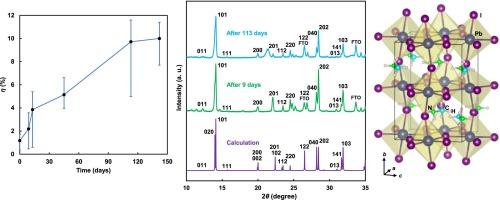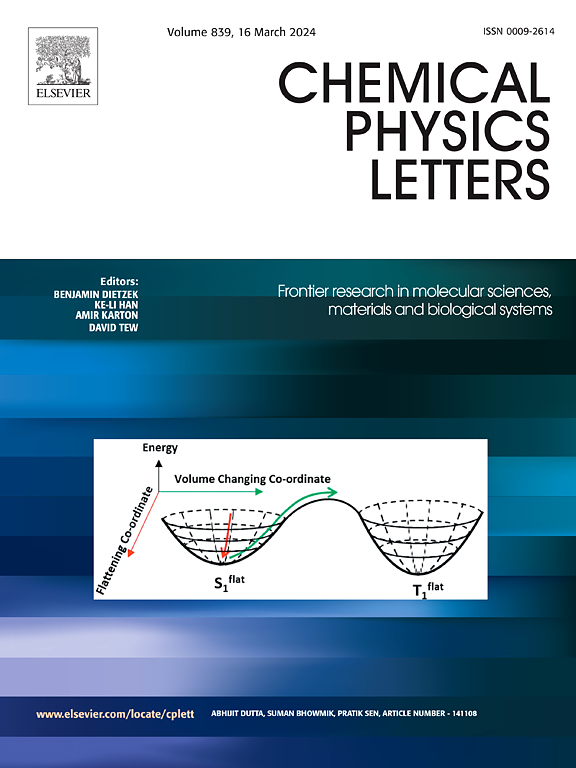形成掺杂镱和钆的正方体 CH3NH3PbI3 包晶石
IF 2.8
3区 化学
Q3 CHEMISTRY, PHYSICAL
引用次数: 0
摘要
通过在铅位点上共同掺杂 1.0% 的镱和 0.5% 的钆,形成了正方体 CH3NH3PbI3 包晶。X 射线衍射结果表明,在 190°C 大气中制造的透辉石晶体即使在室温下也具有正方体结构。虽然制备完成的器件的最高功率转换效率为 1.73%,但 113 天后效率提高到了 11.6%,这可能是由于室温老化过程中 (100) 取向晶体生长导致串联电阻下降。本文章由计算机程序翻译,如有差异,请以英文原文为准。

Formation of orthorhombic CH3NH3PbI3 perovskite co-doped with ytterbium and gadolinium
Orthorhombic CH3NH3PbI3 perovskite crystals were formed by co-doping1.0 at% ytterbium and 0.5 at% gadolinium at lead sites. X-ray diffraction results showed that the perovskite crystals fabricated at 190°C in an atmospheric air provided an orthorhombic structure even at room temperature. Although the highest power conversion efficiency was 1.73 % for the as-prepared device, the efficiency was improved to 11.6 % after 113 days, which could be due to decrease in series resistance caused by (100)-oriented crystal growth during room temperature aging.
求助全文
通过发布文献求助,成功后即可免费获取论文全文。
去求助
来源期刊

Chemical Physics Letters
化学-物理:原子、分子和化学物理
CiteScore
5.70
自引率
3.60%
发文量
798
审稿时长
33 days
期刊介绍:
Chemical Physics Letters has an open access mirror journal, Chemical Physics Letters: X, sharing the same aims and scope, editorial team, submission system and rigorous peer review.
Chemical Physics Letters publishes brief reports on molecules, interfaces, condensed phases, nanomaterials and nanostructures, polymers, biomolecular systems, and energy conversion and storage.
Criteria for publication are quality, urgency and impact. Further, experimental results reported in the journal have direct relevance for theory, and theoretical developments or non-routine computations relate directly to experiment. Manuscripts must satisfy these criteria and should not be minor extensions of previous work.
 求助内容:
求助内容: 应助结果提醒方式:
应助结果提醒方式:


